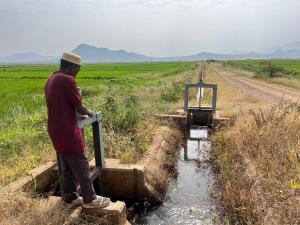Test project Pesticides and Protection Tanzania
testing out building a project
Omar Pérez: Submarine Roots, Resisting (un)natural disasters
omarperezI am interested in seeing how social ties and networks have been used to cope with (un)natural disasters. My research focus on places under disasters conditions such as Puerto Rico after hurricane Maria, in which social ties have made the difference between life and death. Furthermore, “natural” disaster has been used to approved austerity measures and unjust policies to impoverished communities like in New Orleans after Katrina. These policies were not new, as they are rooted in structures of power to preserve the status quo. Yet, people have resisted, “through a network of branches, cultures, and geographies” that has stimulated a reflective process of looking within for solutions rather than outside. As often this outside solutions are not only detached from community’s reality but can perpetuate social injustices and inequalities.
McKittrick, K., & Woods, C. A. (Eds.). (2007). Black geographies and the politics of place. South End Press.
Bullard, R. D., & Wright, B. (Eds.). (2009). Race, place, and environmental justice after Hurricane Katrina: Struggles to reclaim, rebuild, and revitalize New Orleans and the Gulf Coast. Westview Press.
Environmental Justice framing implications in the EIS

The Environmental Impact Statement (EIS) is a document required by the National Environmental Policy Act
Annotated Bibliography (EIS)
This link complements the Essay Bibliography of the Project Environmental Justice framing implications in the EIS.
Environmental Justice Framing Implications in the EIS. Essay Bibliography
This is the PECE essay bibliography for:
EPA Database on EISs
This (EIS) database provides information about EISs provided by federal agencies, and EPA's comments concerning the EIS process.
pece_annotation_1473104682
josh.correiraOne argument presented is that public engagement in technical decisions can lead to great vigilance and confidence in emergency preparedness and that decisions governing technologies should not be left to the scientist. There is benefit in including lay people and STS scholars. This also includes public awareness about emergency response instead of one elite governing body controlling what is best for the public. Nuclear emergency responses must be transparent.
pece_annotation_1473112319
josh.correiraThe students who complete the program receive a PhD after either 4 or 5 years, as described above



the rice irrigation scheme, Pare Valley, Tanzania